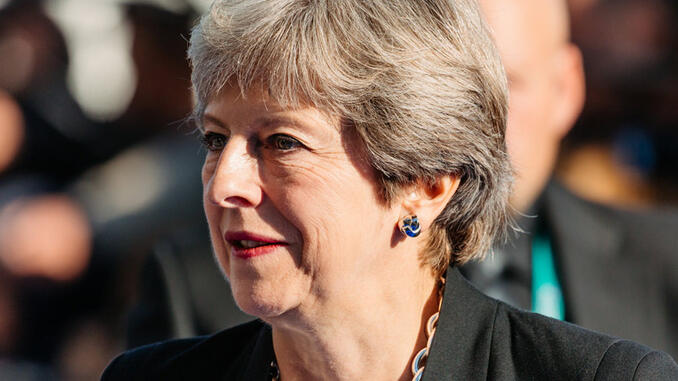
It has been a bad week for Theresa May and Brexit. After spending 16 months negotiating a Brexit deal, Prime Minister May scheduled a “meaningful vote” on a 585 page withdrawal agreement and a 26 page political declaration on the future relationship between the United Kingdom and the European Union for Tuesday, December 11. However, when it became painfully clear the day before that the agreement would be overwhelmingly defeated, she was forced to cancel the vote.
Resistance to passing the agreement focused on what is known as the Irish backdrop. If nothing is done about the border with Northern Ireland once Brexit happens, it would in effect create a hard border with Ireland where products and goods would have to be physically checked since Northern Ireland will remain part of the European Union customs union. Neither the E.U. or U.K. want this to happen. Prime Minister May negotiated a backdrop to prevent a hard border that would in effect keep the entire U.K. in the E.U. customs union for a limited time until further negotiations could resolve the problem. But in the draft agreement there were no hard guarantees that the measure would only be temporary if future negotiations fail to solve the issue. The details of the backstop, which were finalized in a draft last month, have caused a backlash among May’s own followers with several of her ministers resigning in protest which offered a portent of the disastrous events of this past week.
When May pulled the vote this past Monday to prevent her Brexit deal from being defeated by a wide margin, she immediately flew off to mainland Europe to seek reassurances from E.U. leaders to help save her Brexit deal. She returned home empty handed and was met by a vote of no confidence led by members of her party. In order to survive the vote, she promised members of her party she would not run for reelection. She survived the vote, 200 to 117, but it left her leadership crippled and a successful Brexit in serious doubt. After surviving the vote she headed back to Brussels only to return once again empty handed as European leaders refuse to hold more Brexit negotiations.
Time is running out to reach a negotiated Brexit. Under the two-year deadline of Article 50, time will run out on March 29. May has promised to hold the next vote on a Brexit agreement before January 21. If she cannot negotiate a Brexit deal with her own party, it would spell disaster for her country. A no-deal exit would deeply effect a vast array of legal agreements that control currency, trade, citizenship, and could even jeopardize crucial agreements like the Good Friday Agreement that has brought peace to Northern Ireland. The very realistic prospect of a no-deal Brexit is pushing many towards support of holding another Brexit referendum and let the people decide. Some believe it is the only way to break parliamentary gridlock. Such a scenario could allow voters to choose between May’s plan or staying in the E.U.
There are not many options left between what the Prime Minister has negotiated and her intransigent party. A better deal with Europe is no longer possible.
